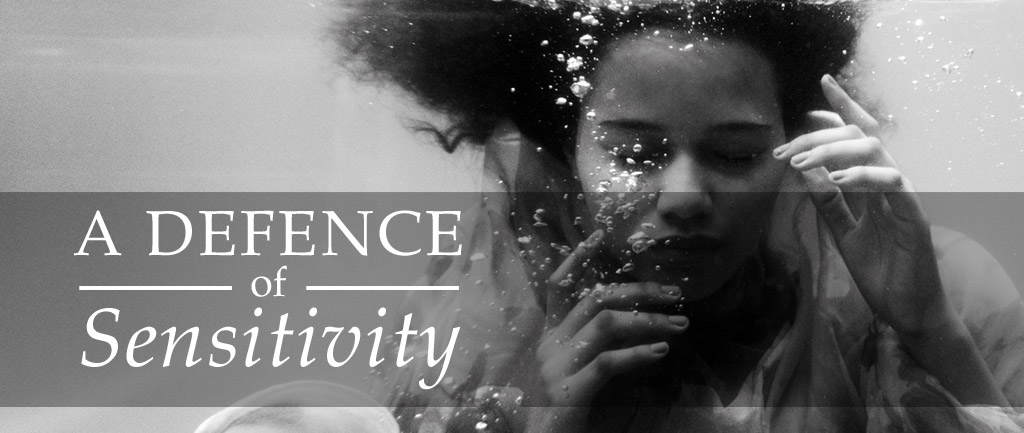
Managing hypersensitivity in a protective and honoring way is something I’ve worked on a lot of my life, though much of this journey was unconscious. It is no easy thing to be sensitive in societies determined to put productivity, materialism, and physical survival as the only worthy and measurable pursuits. This narrow focus by numbed and overwhelmed modern culture can help explain, among other things, the undervaluation of caring and service roles, the tolerance of physical and emotional abuse and deprivation, the continued environmental destruction we see, and almost universal burnout.
All this is easily clear enough to highly sensitive people with some thought, but many may face difficulty presenting the value and worth of sensitivity except perhaps in caring for the vulnerable. Even this sentence implies a distinction between those vulnerable ones who deserve more care, and the rest of us who need to suck it up and get on with Life in Capitalism World.
The point not often argued or faced is that all of us are sensitive and vulnerable in some way. This subject can be especially taboo for those who sucked it up and were rewarded for it. A lot of money and convenience is secured through exploitation, abuse, destruction, and turning a blind eye to inequality and trauma. The grizzled veterans of this economic machine, who long fused with their armor, are often the ones preaching, in not so many words, that everyone who is sensitive should just numb out and go along, like they did.
Suck it up. Don’t be soft. Man up. Move on. Don’t be a baby. The millennials are spoiled and pampered. They’re the strawberry generation. You got it too easy. Don’t complain. Don’t be ungrateful, you should be thankful just to be alive. That’s not abuse! You should be thankful just to have a job/partner/parent! (Just live with the suffering like I did and stuff it deep, deep down.)
I tried. And I know other people who’ve tried, too. But numbing and silencing is a bit of a fool’s errand for anyone truly and stubbornly inclined to truth-telling, art, creativity, and caring.
I propose other ways of using and protecting sensitivity, and more: I’m going to fight for the right to feel, because what we need is more sensitivity–not less–to make this world more livable.
A quick anecdote on sensitivity and perception
Astronomy class back in 1998 had me staring at black and white spectrographs for identifying faraway bodies and one of the things I struggled with was how to tell when something was a white dwarf star. It was a visual and mental block because, as far as I could see, a certain wavelength of radiation wasn’t exclusive to them exactly, so what was the darn textbook talking about as far as interpreting the wavebands? I kept staring at the graphs until I got enough courage to admit to the professor that I couldn’t figure it out and needed help. (Me, an Asian student, and on the eve of a big test. I was clearly a failure to my race.)
He gently pointed out that I needed to look at more than the bands (and where they were in the graphs), at another quality that should have jumped out at me as an artist: The thickness and blurry edges of the giveaway band of radiation.
Focused as I had been on precision and crisp lines, I’d completely missed noticing other patterns and qualities, like soft edges. I just hadn’t paid attention or known how to see them until they were pointed out.
Sensitivity and perception, to me, is about learning how to recognise, understand, and interpret details that not everyone can, or is trained to see.

Different Types of Sensitivity
Sensitivity to chemicals, smells, light, and noise is easily accepted, even honored on our worst days when we’re recovering from a hangover. Few people (aside from abusers) question these sensitivities as they pop up, but emotional sensitivity is often derided as soft and (to be honest) a weak and feminine flaw.
Interestingly, when I made the list (below) of different types of sensitivity, I started to see a pattern: That sensitivity is a type of perception and needed in many (if not all) professions, but some are celebrated over others (usually for making more money) and often along the gender divide. (Ah, good ol’ misogyny. Will we ever see the back of you?)
A non-exhaustive list of different types of sensitivity
Kinesthetic and Physical
- Keen sense of personal fitness, energy levels, balance, finesse and strength
- Keen sense of movement and how one is moving; which muscles are being used; what shapes with the body are being created; timing and speed
- Trained in athletes, dancers, and physical performers including actors
- Generally recognized in any physical training but celebrated most in male-dominated sports
Musical
- Perfect pitch
- Keen noticing of rhythm, timing, melody, volume, texture, vibrato and other variations with sound
- Recognised in composers, musicians, vocalists, instrument makers
Visual/Artistic
- Keen noticing of details including colors and relationships, composition, texture, lines, shapes, negative space, visual weight, color intensity and shifts, balance, etc.
- Needed for designers, artists and photographers
Spatial
- Keen sense of physical space, size, dimensions, volume and proportion
- Able to visualize and “play” with 3-dimensional shapes and different perspectives
- Needed for videographers, choreographers, architects, 3D artists, visual/movie directors, logistic planners, stage designers, decorators, etc.
Verbal
- Observant of word choices, arrangements, inflections, word play, puns, meaning, etc.
- Noticing the level of vocabulary and the reasoning behind the words
- Noticing what was omitted, inaccurate, or fallacious
- Needed by editors, speech writers, diplomats, writers, comedians, lawyers; pretty much anyone who works with verbal communication
Social
- Noticing expressions, postures, non-verbal gestures, ticks and voice tones in people
- Being able to draw conclusions of receptivity, mood, thoughts, and feelings of others
- Being able to figure out acceptable and unacceptable speech and behaviors
- Universally useful for dealing with people
Cultural and contextual
- Same as social but with added pattern recognition! Noticing speech and behavioral patterns and other giveaways across different individuals due to cultural and socio-economic backgrounds
- Being able to figure what ticks or patterns may be unique to the individual, and which are unique to the context and other factors; recognizing sarcasm and satire
- Being able to figure out acceptable and unacceptable speech and behaviors in different contexts and cultures
- Universally useful for not acting like a dick
Emotional/Empathic Sensitivity
- Hardwired into humans (unless suffering antisocial personality disorder)
- Being studied in mirror neurons that fire in our brains and that “mirror” someone else’s activated neurons when we see them doing something
- This mirroring identifies those actions for us, and some people with more of these neurons firing may be able to “feel” or guess intentions, motivations, and sensations felt by the other
- More mirror neurons fire when we’re witnessing someone with whom we share physical or cultural similarities
- We understand this as empathy. We wince or cringe when we watch others experience pain or embarrassment. It can feel pretty darn real.
Environmental
- Noticing the qualities of spaces and environments with one’s innate senses, including air quality, air movements, elevation, smells, humidity, background sounds, activity, biodiversity, health of the plant/animal residents, geopathic stress, effects upon the human nervous system, etc.
- Knowing and being able to measure and confirm these qualities in a place, including with instruments and careful study, sometimes by way of a map, an underground utility map, or history of a location.
In all the above, training (at times, years of it) can make someone observe and make decisions based on a sensitive perception of specific qualities that may have been trained or been gifted at birth. If nothing else, this tells us that all sensitivity has value when applied where they serve best. The same is, after all, true for all scientific instruments–sensitivity being the biggest part of what makes them useful, when we know how to use them and what we’re looking for.
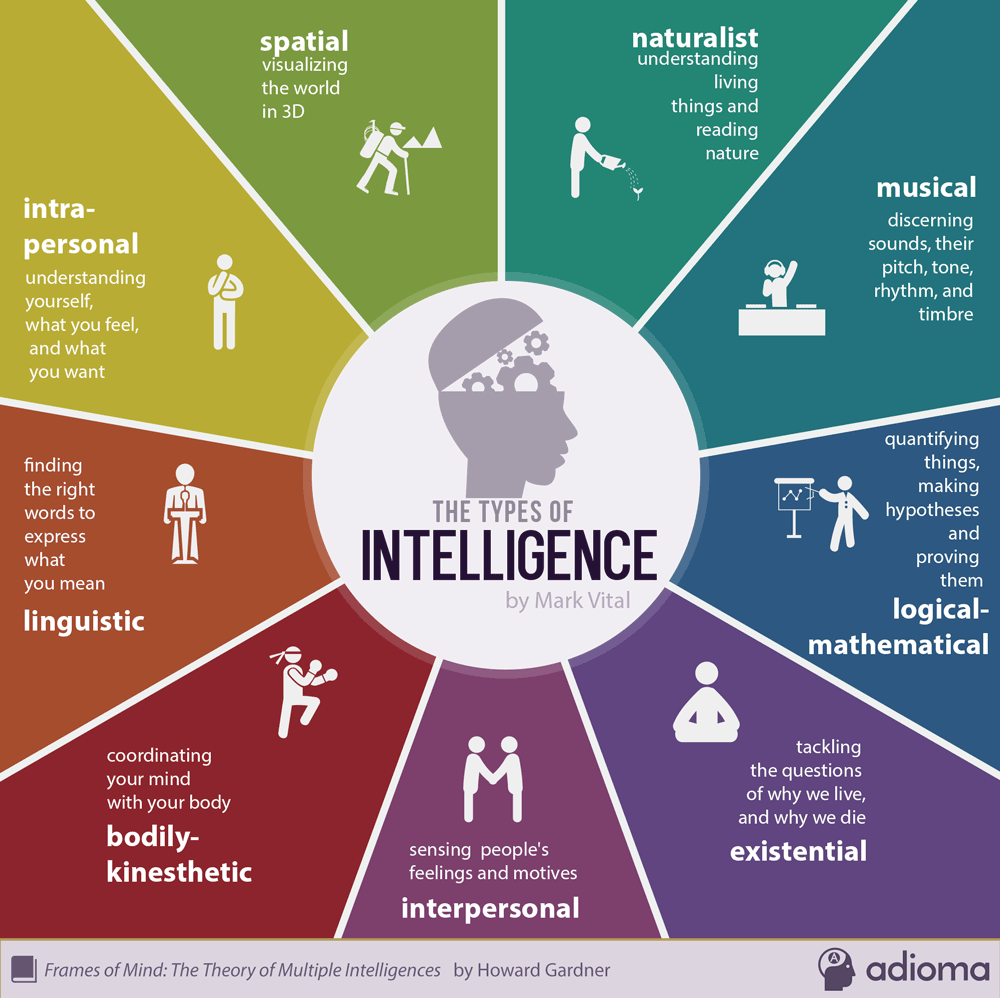
I recalled and found this graphic again after creating the list of sensitivities. It’s almost as if there’s a correlation between sensitivity and intelligence. Funny, that. Infographic source
It’s clear we don’t all have the same senses and sensitivity, but we can learn to appreciate different kinds of sensitivity and even hone our sensitivity in areas that help us excel in certain roles. Perception too goes beyond the “five senses” we’ve had drilled into us since we were children. Those who work in any capacity with sensory processing and integration in children know a higher number of senses:
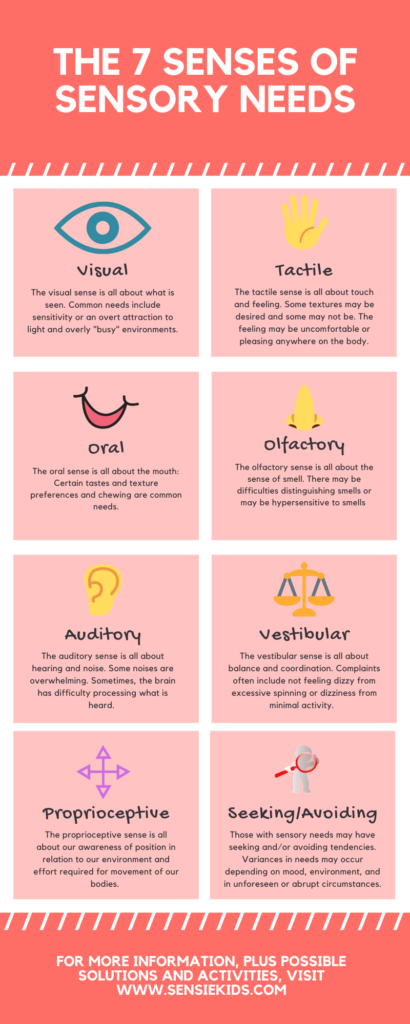
TL;DR Sensitivity is Intelligence
It’s fair to conclude anyone who uses the words “You’re too sensitive” or You’re oversensitive” is less intelligent and/or sensitive than the subject they’re saying it to. It still makes them a gaslighting butthole.
(Also, it’s very possible that Yours Truly has written this entire thing as a delayed rage-fueled exercise to get back to their original gaslighting butthole. Just acknowledging my bias and motivation; Self-acceptance in action, as it were.)

Empaths, How Do They Work?
As a kid, I was intensely interested in ESP (Extra Sensory Perception) and the “sixth sense”. My cousins and I made our adapted our own Zener cards* from regular playing cards. I desperately wanted to be psychic (weirdo, me) but I was often one card off in my guesses when we used number cards.

* You saw them in the original Ghostbusters.
Multiple labels and explanations have been given through time about how certain people can know things without a Materialist explanation: Spider sense, gut feel, intuition, ESP, psychic sense, mediumship, spiritualism, auric fields, having one’s third eye open, etc. Cynics and skeptics can and will point to cold reading. I won’t speak for all people who have worked as a medium or psychic (“confession”: I’ve worked New Age/psychic fairs in Singapore and Australia) but I do have my own experiences and examples of accurate, specific “hits” I’ve made.
I’m not interested in defending a woo explanation for empaths or psychic readings. I do see colors around/within people when I’m in a meditative and open state, and have personally accepted the kundalini chakra system as a model to understand and interpret my experiences. I am not interested in pushing the system as “reality” upon anyone, but the knowledge, in my experience, is a useful tool for those with sensitivity to subtle energy.

I mean it worked for The Ancient One and Dr. Strange
Seldom in my work did I call myself an empath (here’s the most popular definition of empath that’s come from Dr. Judith Orloff) , especially when I feel now that mirror neurons essentially makes everyone empathic. I wasn’t interested in it as an identity; but I knew I’d been able to pick up and physically feel the physical aches/pains and sensations of some of my clients while in their proximity, before they’d reveal that they were suffering the symptoms I’d felt in my own body. Having practiced meditation for years, I was familiar most times with my own “base state” and able to identify subtle sensations that were brought on by outside factors.
And, because of my work as an artist, and an intimate familiarity with how I imagine and “see” things in my head when I’m actively visualising, I started to notice how, in meditation, I would still receive visuals when I was passive. And that the nature and content of these visuals could change according to external circumstances, and my intentions and focus. Some would call this clairvoyance. I personally found this was a level of sensitivity I had to read a lot about to understand, and now it’s like tuning a radio, with my inner eye as receiver. It still feels like a very fine muscle, but it’s there, with my previous artmaking having set the foundation. So much of drawing, after all, is learning how to see.
And meditation has generally been found to heighten one’s senses and awareness. In other words, heightening one’s sensitivity. The downsides can be hypervigilance, overwhelm, hypersensitivity, anxiety, depression, and insomnia. Source 1 (Vice article) Source 2 (Brown University study) Source 3 (Brown University and researchers) (I went through the downsides 2009-2012. It was post-partum anxiety, a deteriorating marriage, my brother’s death, and an astrological Pluto transit, basically.)
I believe empaths, or people with more mirror neurons or activity, do exist. Research shows mixed effects of autism and childhood neglect/abuse on mirror neuron activity and development in children and teens. Source 1 Source 2 Source 3 Source 4 Source 5
Whatever woo wants to say about empaths and empathy, mirror neurons and their different patterns/activity in individuals could account for a lot of differences in sensitivity from person to person. And I believe one can learn to “attune” themselves (with meditation or mindfulness), pay attention to, and interpret the input they get.
Basically, consciously applied and accurate emotional sensitivity is not impossible.
Bonus link: Forbes – Are mirror neurons a myth and what are they anyway?
(Summary: They’re not a myth, and the uses of mirror neurons are practical and immediate.)
A Note on the Insensitive
A variety of reasons, then, could account for people who appear less sensitive, including their past experiences, and the coping and defence mechanisms they developed. Toxic masculinity would seem an umbrella category of common traits used by men to mask their emotional sensitivity. Another classification is APD or general antisocial behaviors.
In areas of politics and social justice, I’ve always found it interesting that US politics seem divided into two types of people with different responses to adversity: The progressive response that calls for more social welfare, social justice, and less policing over gender and sexual expression, vs the conservative response demanding more social control (conformity in gender/sexual expression and acceptable relationships) and punitive measures for nonconformity in religious, sexual, financial and racist racial ideals. Diversity and difference threatens and challenges the second group, while the first is motivated differently:
“Specifically, the studies by Jost and his colleagues, including Michael Strupp-Levitsky, who conducted the work as an NYU undergraduate and is now a doctoral candidate at Long Island University-Brooklyn, showed that those moral foundations known to be more appealing to liberals than conservatives—specifically, fairness and harm avoidance—are linked to empathic motivation, whereas the moral foundations that are more appealing to conservatives than to liberals —such as ingroup loyalty and deference to authority—are not.” Source
Other authors and researchers have already put out books and papers on the psychological and decision-making differences on both sides of the political spectrum, so I won’t:
- These key psychological differences can determine whether you’re liberal or conservative
- Why We Divide Into Liberals and Conservatives
- Political Orientations Are Correlated with Brain Structure in Young Adults
- Fear and anger had different effects on conservatives and liberals, study suggests
Survival Mode, Stress Responses, and Overwhelm
Sensitivity definitely has its downside: Highly sensitive people, feeling more, are more easily overwhelmed. Our bodies, in their wisdom, have ways of processing stress. But overloads or chronic stress in the form of adverse environments leave long-term health effects, including autoimmune, nervous system, and endocrine disorders. (This is where, again, I’ve had personal experience.)
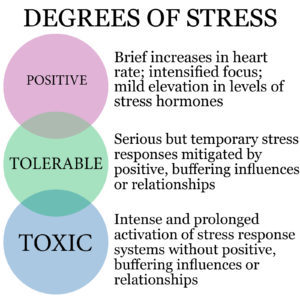
Source: Toxic Stress and ACEs
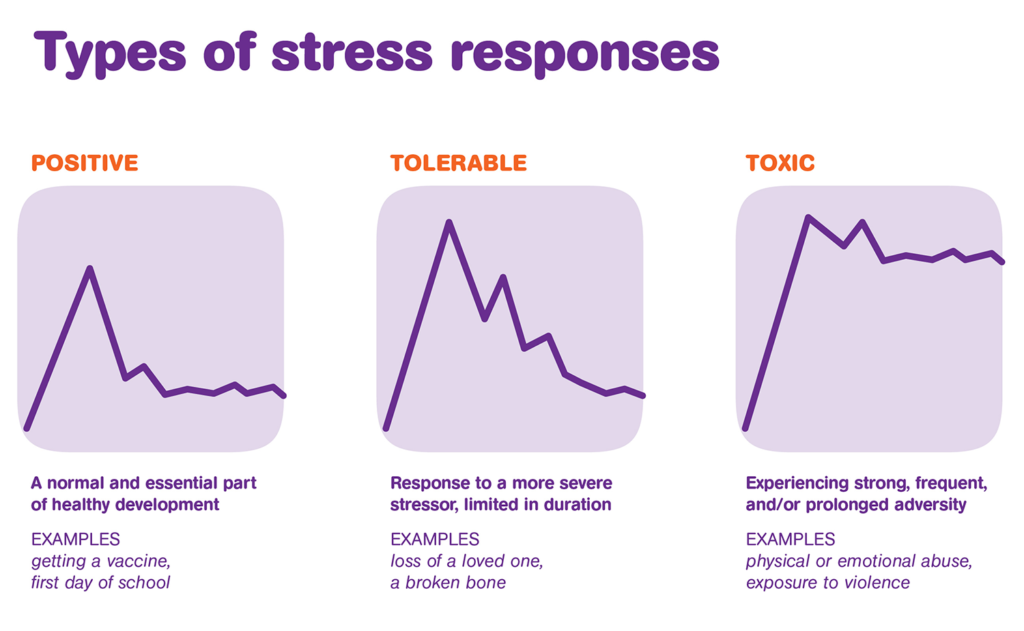
Source: Toxic Stress and Caring Adults
When the Body Says No and The Body Keeps the Score are the most well-known books on the topic of how ACEs (adverse childhood experiences), trauma, and chronic stress are related to chronic health conditions.
The problem, however, should not be seen as sensitivity itself. It’s the lack of sensitivity in our environments, especially those prioritizing loyalty, conformity, lack of empathy, abuse, numbing out, survival, systemic inequality, punishment, toxic masculinity and hard-nosed capitalistic ideas that make sensitivity, and thriving with it, an uphill climb.
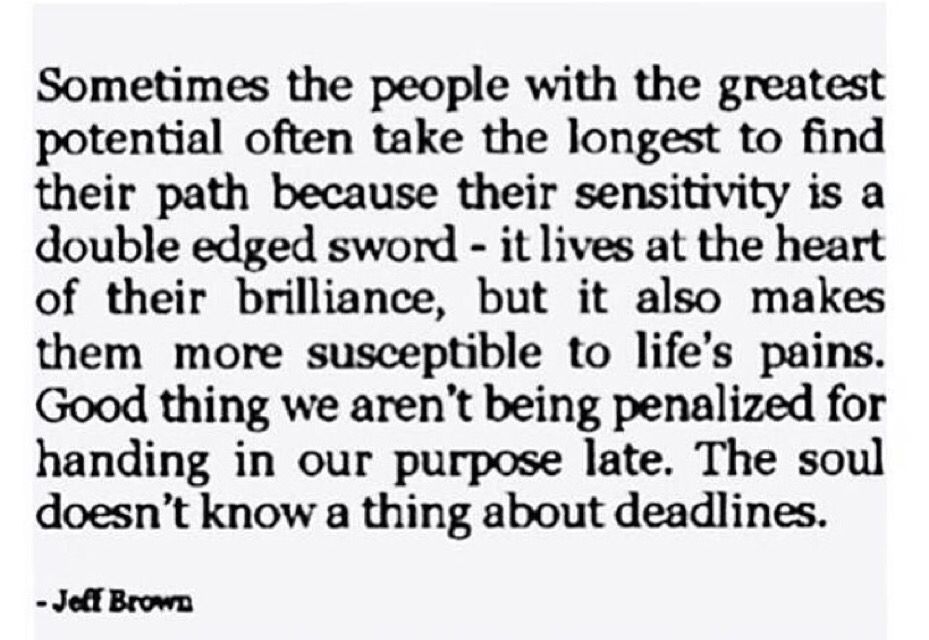
The Sensitivity Toolbox
- Supportive and kind adults
- People who respect boundaries
- People who respect you
- Self-awareness
- Self-regulation including therapy
- Self-care
- Safe spaces
- Grounding and Exercise
- Different types of rest
- Knowledge (is power)
In Astrology and Shadow Work I described how people may disown traits that they do not want to acknowledge or accept, or may lack the tools and capacity to deal with. Sensitivity can be a part of one’s disowned shadow. Everyone has defence mechanisms, some of which, in trying to protect one’s life or ego, can lead a person to disassociate from, numb out, or rationalise or minimise their distress and sensitivity.
But an empath’s shadow (for one who embraces their sensitivity) can also be the reluctance to impose boundaries or work on codependent behavior. It’s possible to use one’s sensitivity–and the excuse of helping everyone else with their problems–to avoid dealing with one’s own uncomfortable stuff.
It’s a fine line to tread, but if anyone’s going to find that fine line, it’s going to be someone sensitive!
If you’ve read this far…
Thanks! To avoid making this blog post twice as long, I’ll cover in more detail the above list of tools for sensitive people in the next entry. You can also check out Energetic Self-Care or my meditation/energy classes.
Cover image by Kenneth Gorzal Surillo
